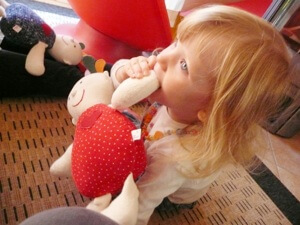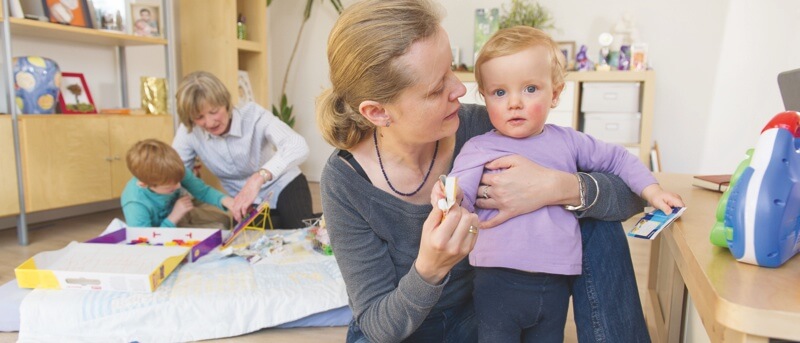 "It's not nice to have no money"
"It's not nice to have no money"
Child poverty in Germany
Looking into a German child's rooms can be depressing sometimes. All you can find are matrasses instead of beds and no toys. Children are the first who suffer when a family is facing severe challenges – through poverty, divorce, illness, moving or other factors.
Necessity
Supplying poor children in Germany.
Activity
The local specialist talks to the family in misery about the needs of the children and hands vouchers to the family with which it can buy the products having asked for.
Countable effort
Amount of children who could be supported by the project.
Result
Measurable reduction of financial shortages of families in misery.
Systemic effect
The self-worth of the children will be increased through adequate facilities and societal participation. Altogether the family situation will be stabilized, so the family can develop new perspectives, which help it to become independent from external assistance.
Background
According to the German Children’s Fund (01.01.2014), about 2,8 million children and teenagers are affected by poverty. In the fourth report on poverty and wealth (March 2013), the government describes the situation correctly: “particular circumstances of families with children, such as a missing or too low labor participation of the parents due to a lack of available child care for small children, or crises such as separation or divorce, are often leading to a very low income. If several factors come together, risks of poverty can influence each other and it becomes more difficult to overcome these situations. Single parents and their children as well as families of immigrant backgrounds are affected above average.” However, it is not only money that is needed but also knowledge. The German welfare state offers many kinds of support. Nevertheless, more and more affected people do not have the necessary knowledge and skills to deal with the bureaucratic system. Moreover many parents, particularly those who find themselves in crisis situations, simply do not have the energy to ask for external help.
The good deed
Children of families in misery will be supported on an interim basis through professional sponsorships in an un-bureaucratic, individual and efficient way for one year. The money of the sponsors will not simply be transferred to the bank account of the family. In advisory sessions it will rather be discussed what the children need most and how further assistance – education, language classes, child care – could look like. The sustainable positive impact of Wellcome-sponsorships for families in misery is based on the successful triangle of material support, advertising and networking. Families can regain courage and feel seen and supported through the unexpected help. The diapers are symbolic for the investment of the families in material things they need for their offspring.
Challenge
The risk is lying in the growth: To date 100% of the sponsorship-money has been directed to the families. In order to develop a stable financial concept the system had to be changed in 2013. Now 10% of the sponsorship-money is used for the project coordination, care of the sponsors and matching. Nevertheless 100% of the 24 Good Deeds donation will be directed to the families.

AboutGermany
Berlin
Capital
80.781.000
Number of inhabitants
44,999 USD
Gross domestic product per capita per year
77
Human Development Index
As measured by the GDP, Germany is the largest national economy in Europe and ranks fourth worldwide.
About the organization and further information
Association
Freundeskreis Indianerhilfe e.V.
PHINEO Initiative Transparente Zivilgesellschaft
Further information and source
- http://www.wellcome-online.de/
- https://www.dkhw.de/cms/presseundmaterialien/pressemitteilungen/1892-deutsches-kinderhilfswerk-im-jubilaeumsjahr-der-un-kinderrechtskonvention-kinderrechte-als-querschnittsaufgabe-verankern
- https://www.bmas.de/SharedDocs/Downloads/DE/PDF-Publikationen-DinA4/a334-4-armuts-reichtumsbericht-2013.pdf?__blob=publicationFile
- http://www.spiegel.de/wirtschaft/soziales/kinderarmut-mehr-als-1-6-millionen-betroffene-in-deutschland-a-996606.html




